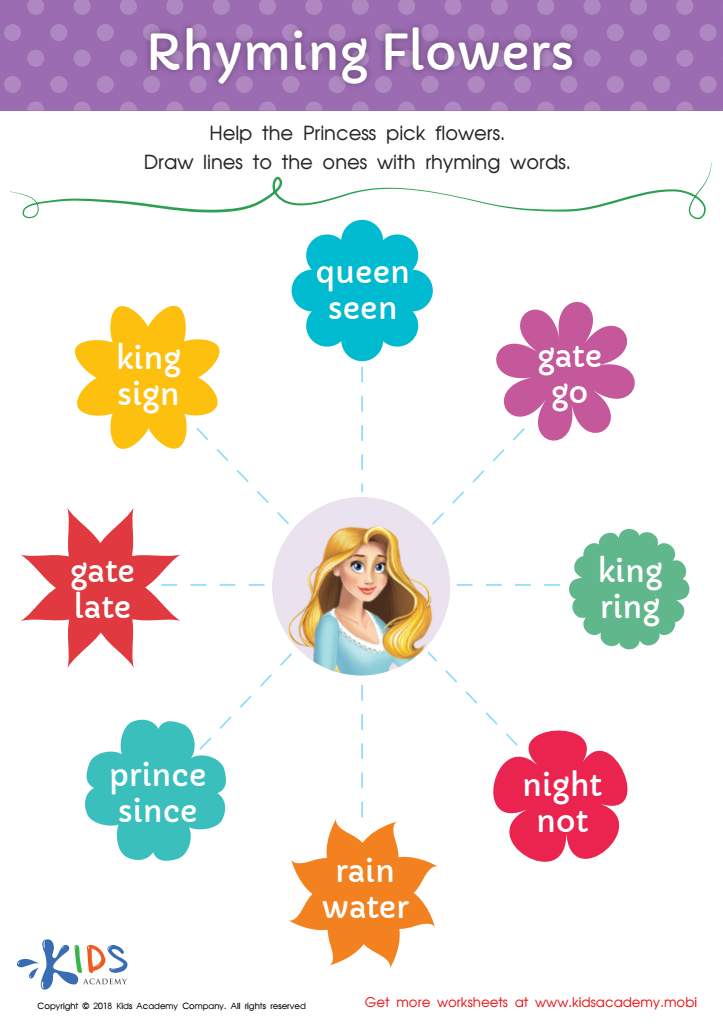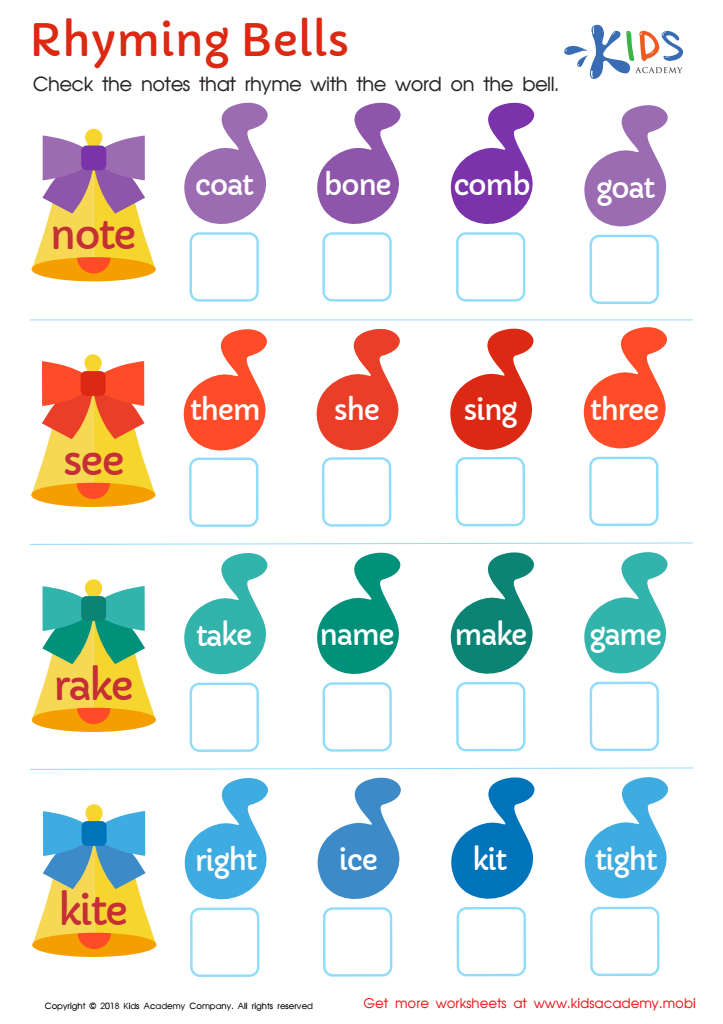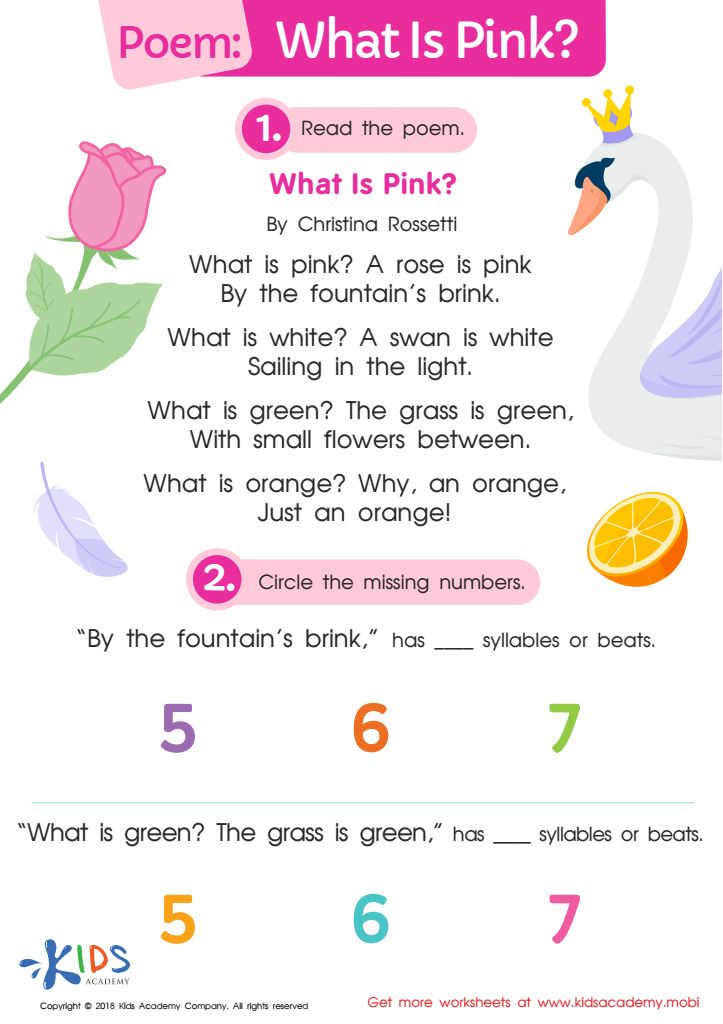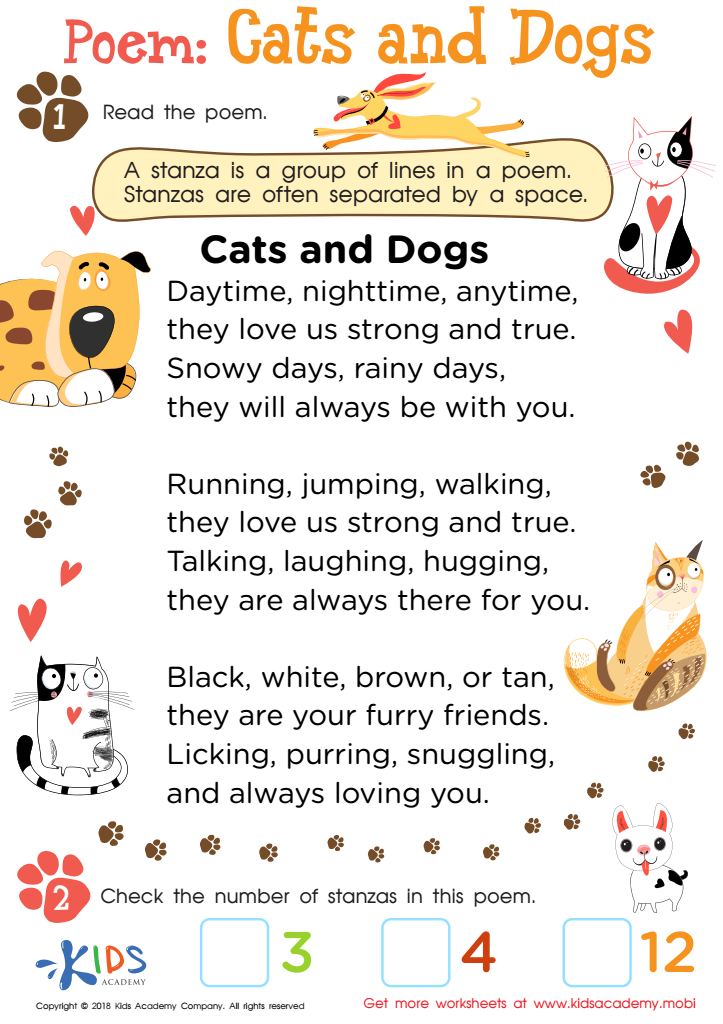Vocabulary enhancement Normal Rhyming Worksheets for Ages 6-8
8 filtered results
-
From - To
Enhance your child's vocabulary with our Normal Rhyming Worksheets, specifically designed for ages 6-8! These engaging and fun-filled worksheets combine the excitement of rhyming with essential vocabulary development. Each activity encourages children to identify and match rhyming words, boosting their phonemic awareness and comprehension. Our colorful, kid-friendly designs make learning enjoyable, ensuring that children actively participate without feeling overwhelmed. Ideal for teachers and parents, these resources provide a solid foundation for language skills while promoting creativity and critical thinking. Explore our collection today and watch your child flourish as they deepen their understanding of language through the joy of rhyming!


Rhyming Words: Assessment Worksheet


Rhyming Flowers Worksheet


Rhyming Words Rhyming Worksheet


Rhyming Bells Worksheet


First Words: Picture Rhymes Worksheet


Poem: What Is Pink? Worksheet


Poem: Cats and Dogs Worksheet
Vocabulary enhancement through normal rhyming is crucial for children aged 6-8 as it significantly boosts language development, reading skills, and overall cognitive growth. At this age, children are in a critical period for acquiring language, and engaging with rhyming words cultivates phonemic awareness. Phonemic awareness is vital because it helps children recognize sounds and the connections between spoken and written language—skills that form the foundation for effective reading and writing.
Furthermore, rhyming activities make learning enjoyable and interactive. When children participate in rhyming games, songs, and stories, they develop a deeper understanding of language patterns, which not only enriches their vocabulary but also enhances their ability to decode unfamiliar words. This is particularly important as they begin to explore more complex texts.
Parents and teachers who promote vocabulary enrichment through rhyming can also support children's comprehension skills. As students become more familiar with word meanings and sounds, they gather the tools necessary for expressing their thoughts clearly and creatively. Engaging in rhyming activities fosters a love for language, encouraging lifelong learning and communication skills that will benefit children well beyond their early years. Ultimately, focusing on vocabulary enhancement through normal rhyming equips young learners for academic success and daily interactions.
 Assign to My Students
Assign to My Students














